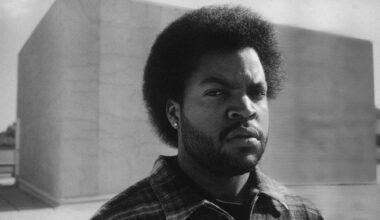Lemmy Kilmister, the iconic frontman of Motörhead, was in his 20s when the ethos of the Woodstock generation began to seep into society. It was a time when peace, love, and freedom were at the forefront of a youth movement that challenged the status quo. But when you think of Lemmy and his nonchalant attitude, you quickly realize how Lemmy Kilmister and the hippie movement were two peas in very different pods.
The hippies of the ’60s and ’70s represented a new wave of thinking, rejecting the materialism and conformity that characterized post-World War II society. They embraced a life filled with love, peace, and freedom and saw music as a vital component of their movement.
On the other side, there were Lemmy Kilmister and Motörhead, which represented the epitome of raw, unadulterated rock and roll attitude, starkly contrasting to the peace-loving, flower-powered ethos of the hippies of that generation. While hippie music was characterized by mellow melodies and lyrics espousing love and unity, Motörhead thundered onto the scene with loud, fast, and aggressive music that defied convention and authority.
While not entirely associated with them, Kilmister was indeed a part of the counterculture in a different sense, in his unique, hard-metal way, of course. Even though he shared some values with the movement, Lemmy was often critical of the hippie ideals and lifestyle, with his hard-hitting and no-nonsense approach to life and music serving as a contrast to the peace-loving ethos of the hippies.
In a 2010 interview with L.A. Weekly, Lemmy shared his thoughts about the movement:
“I just wanted to be the local longhaired guy doing all right. It was the middle of hippiedom, so we were right in the throat of the Woodstock generation. Which was all right with me. I never believed in it. Because there were too many cunts about, which there shouldn’t be if the Age of Aquarius is actually upon us.”
Yet, here’s where things get interesting. Before Lemmy Kilmister made a name for himself as the leader of Motörhead, he recorded a little-known hippie album, ‘Escalator.’ The album, released in 1969, is a musical journey wrapped with a stoned vibe, which depicts the ethos of the Woodstock generation with its vague mystical lyrics. This drop, the only album by the band Sam Gopal, showcases a different side of the musician. Seeing Lemmy mellow like this will probably be the most interesting thing to happen to you today. So we strongly suggest you listen to it.
Before listening to it, here are some info: The album was recorded in 1968. The personnel consists of Ian Willis, later known as Lemmy of Motörhead, Sam Gopal, Roger D’Elia, and Phil Duke. It features 11 tracks, five written by Lemmy, four by the band, and two cover songs, along with two bonus pieces. When you listen to the opening of the album, you might think it’s not that different, as it opens with ‘Cold Embrace,’ a powerhouse of a tune with its thrashy bassline and Lemmy’s iconic echoed vocals.
The album’s first side includes other heavy tracks, as well as gentler tunes like ‘The Sky is Burning.’ However, we recommend you listen to side two, especially the closing song. The album closes with ‘Yesterlove,’ a gentle tune unlike anything Lemmy’s ever done before, with its delicate acoustic guitar intro and dreamy echoes vocals. This very unknown album will create a different image of Lemmy Kilmister in your mind. Still, probably that tough Lemmy you’ve ever known is strong enough to beat that image in no time!







